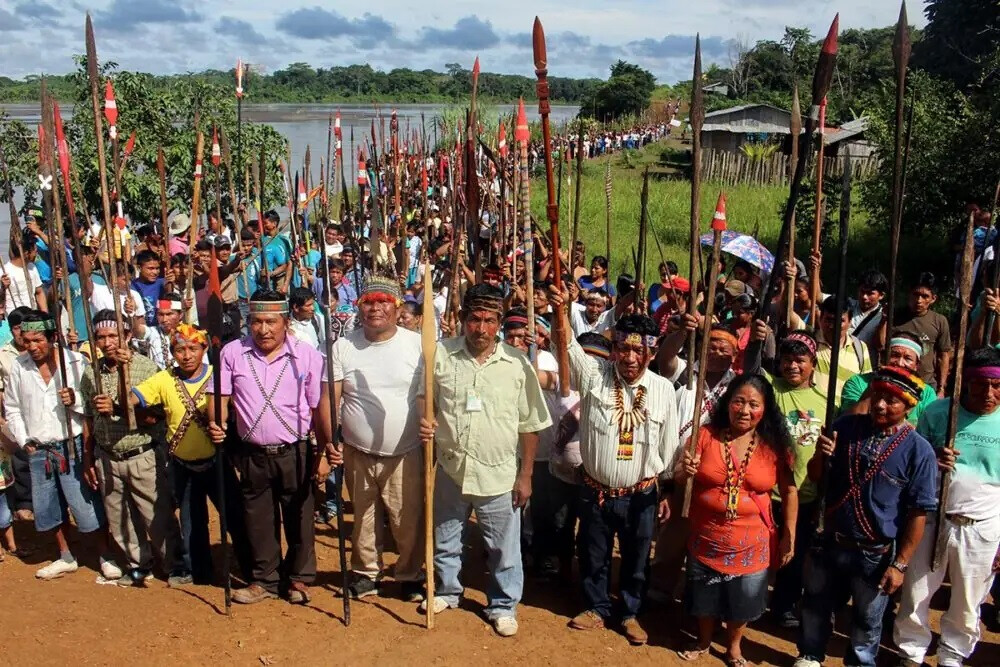
THE HAGUE/LIMA — The non-judicial dispute resolution mechanism of the Organisation for Economic Co-operation and Development (OECD) has put a significant brake on multinational corporations' evasion of responsibility. On September 3, the OECD National Contact Point (NCP) in the Netherlands issued a final statement officially acknowledging that the Argentine oil company, Pluspetrol, headquartered in the Netherlands, caused severe damage to the rights and environment of Indigenous Peoples in the Peruvian Amazon. This decision is highly significant as it clarifies the transnational accountability for a corporation's overseas business activities.
The Tragedy of the Amazon's Largest Oil Field: Environmental Pollution and Indigenous Harm
The case revolves around Block 1AB (now Block 192) in the Loreto region of northern Peru. This area is a vast rainforest spanning 500,000 hectares and was once Peru's largest onshore oil field. Pluspetrol extracted oil here from 2000 to 2015, causing widespread crude oil spills, discharge of industrial waste, and contamination with toxic heavy metals such as cadmium and lead.
Twenty-five Indigenous communities—including the Kichwa, Achuar, and Kukama peoples—residing along the Pastaza, Corrientes, and Tigre river basins have suffered from the contamination of their traditional lands and water sources, as well as severe health problems. In fact, surveys conducted by the Peruvian Ministry of Health in 2005-2006 found heavy metal levels in the blood and urine of these residents that exceeded international standards. The Indigenous communities filed a complaint with the Netherlands NCP in 2020, asserting that Pluspetrol left without properly undertaking the remediation of the 1,963 contaminated sites it left behind.
The Netherlands NCP's Decision: Explicit Violation of Human Rights and Environmental Standards
After five years of investigation, the Netherlands NCP concluded that Pluspetrol violated the human rights and environmental provisions of the OECD Guidelines for Multinational Enterprises. The NCP stated that Pluspetrol failed to conduct adequate due diligence to identify and prevent the adverse environmental impacts of its activities, which also resulted in a lack of respect for the right to health. It also pointed out that the company's remediation efforts for the pollution it left behind did not comply with the Guidelines.
The NCP recommended that Pluspetrol apply international best practices to raise its level of environmental performance, undertake the maximum possible remediation measures, and conduct meaningful consultations with the affected communities, particularly based on 'Free, Prior and Informed Consent (FPIC)'. Furthermore, citing the potential violation of taxation and transparency clauses, it requested the disclosure of the company's corporate governance and financial information.
Establishing a Precedent for Holding 'Letterbox Companies' Accountable
The core significance of the NCP's decision is that it held a 'Letterbox Company' using the Netherlands as its base accountable in the country where its headquarters are located. Pluspetrol has been criticized for operating a complex corporate structure through tax havens, with only an address in the Netherlands and no physical operating activities.
Pluspetrol has long argued that the issue should be handled within the Peruvian judicial system. However, the NCP ruled that Pluspetrol could also be held accountable in the Netherlands, setting a crucial precedent for extraterritorial application by seeking accountability in the headquarters' location, rather than relying on overseas local judicial systems that may lack resources and efficiency and be vulnerable to corruption. This precedent is expected to have a deterrent effect, strengthening the culture of corporate responsibility for the numerous other Paper Companies registered in the Netherlands.
Non-Binding Recommendation, Pressure via International Reputation
The OECD NCP's final statement is not legally binding and cannot compel direct penalties against the company. However, under Dutch government policy, companies that violate the guidelines may be excluded from export credits, trade promotion, and public procurement contracts. Furthermore, the NCP's public conclusions and recommendations become a powerful tool that inflicts 'reputational harm,' pressuring the company to comply by various actors such as civil society organizations, investors, and governments. The affected Indigenous communities plan to use this statement as a core instrument for future legal proceedings.
While Pluspetrol denies the legitimacy of the statement's contents and claims it has already addressed many of the recommendations, the affected communities' core demands are the company's acknowledgement of its environmental crime and the cleanup of the pollution. Meanwhile, criticism has also been raised against the Peruvian government, an aspiring OECD member, for allowing the corporate environmental destruction, leading to questions about Peru's capacity to uphold environmental and human rights standards.
[Copyright (c) Global Economic Times. All Rights Reserved.]




























